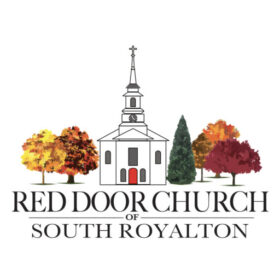“On the night Jesus was betrayed, He took bread, broke it and said, ‘This is my body, which is given for you, do this in remembrance of Me.'”
If you have attended church at some point in your life, chances are good that you have heard those words before.
These words make up part of what Christian churches call “The Words of Institution.” The Words of Institution are the words spoken by Christ Himself at the Last Supper as He inaugurated the new covenant in His blood (see Matt. 26:26-29; Mark 14:22-25; Luke 22:19-20; 1 Cor. 11:23-26).1 All Christian churches since the time these words were first spoken by Jesus have repeated these words in preparation for their celebrations of the Lord’s Supper (or Eucharistic celebrations). To this day, churches of all stripes across the world re-enact portions of the Last Supper event regularly as a core part of their worship.
But why? Why do churches regularly re-enact this Last Supper event?
The simplest answer is because Jesus commanded His followers to do so. In Luke 22:19, Jesus says at the Last Supper table to His disciples, “Do this in remembrance of me.”
The apostle Paul says that he received instruction on the celebration of the Supper “from the Lord” and “delivered” that same instruction to the churches he started (1 Cor. 11:23). All churches that are faithful to the Bible, since the time of Christ, commemorate the Lord’s death in the Supper in one way or another at regular intervals.2 John Piper says:
“[T]he historical origin of the Lord’s Supper is that final supper that Jesus ate with his disciples the night before he was crucified. The actions and meaning of it are all rooted in what Jesus said and did on that last night. Jesus himself is the origin of the Lord’s Supper. He commanded that it be continued. And he is the focus and content of it.”3
EUCHARIST, COMMUNION, OR LORD’S SUPPER?
But the practice is richer than sheer obedience to commands. Some of that richness can be seen in the various names given to the practice of re-enacting the Last Supper. Here are some examples:
The Eucharist. The word Eucharist literally means “thanksgiving.” This terminology emphasizes the gratitude believers share in Christ’s sacrifice. As we receive the bread and the cup again and again, we are reminded of the abundance we have in Christ.4. In the words of Tish Harrison Warren:
“The Eucharist is a profoundly communal meal that reorients us from people who are merely individualistic consumers into people who are, together, capable of imaging Christ in the world. Of course, eating itself reminds us that none of us can stay alive on our own. If you are breathing, it’s because someone fed you. We are born hungry and completely dependent on others to meet our needs.”5
When the Eucharist is received, believers are filled with gratitude towards a God who continually meets their needs in Christ.
Communion. Many Protestants, like myself, refer to the act of receiving the Lord’s body and blood as the “Lord’s Supper” and sometimes as “Holy Communion” or just “Communion.” The word “Communion” is born out of the idea that believers share a “common union” with Christ. When they partake of the bread and wine together, they are outwardly expressing their shared union and fellowship with Christ. 1 Cor. 10:16 says:
“The cup of blessing that we give thanks for, is it not a sharing in the blood of Christ? The bread that we break, is it not a sharing in the body of Christ?” (HCSB)
The term “communion” focuses on the precious union that believers share with one another in Jesus Christ. This union with Christ is the source of all other blessings that we have in Him.
The Lord’s Supper. The term “Lord’s Supper” comes directly from 1 Cor. 11:20-21 where Paul says:
“Therefore, when you meet together, it is not to eat the Lord’s Supper, for in your eating each one takes his own supper first; and one is hungry and another is drunk.”
When we think of supping (eating), we think of continual coming. Eating is something we have to do every day. Our tanks are filled and then emptied over and over again. In the same way, our need for Jesus never ends–the Lord’s Supper reminds us of our ongoing need to feast on all that Christ is for us. Eating is also something that appeals to our senses. God, in His infinite wisdom, has put tangible experiences at the heart of our worship. The breaking of the bread and pouring out of the wine or juice should remind us of that solemn night at the Last Supper when Jesus was betrayed and eventually crucified. As we hear the Words of Institution recited, as we see the bread broken and juice poured, as we taste of the body and blood of Christ, we look through these sensory experiences to the reality of Christ’s death our entire being is engaged–our minds, our hearts, and our bodies.6
NOT A NEGOTIABLE PRACTICE
When asking the question “What are the marks of a true church?”, many writers and Christian scholars today agree that there are two fundamental marks that separate a true church from other kinds of spiritual gatherings: First, a true church preaches and teaches the bible correctly. Secondly, a true church correctly administers the sacraments (also called “ordinances” in some churches) of baptism and the Lord’s Supper.7
Every single gospel in the Bible contains an account of the Last Supper, though John’s account focuses more on Christ’s teaching and not on the eating and drinking. This moment in the lives of Jesus and His followers was very significant and the early churches took Christ’s command to “do this” seriously. In fact, in many early books of church order, we gather that the Supper had a dedicated time set aside whenever believers gathered–one portion of worship was for prayers, bible reading and the sermon, and the other was set apart for the receiving of the bread and cup.
What all of this suggests, therefore, is that reason that the church celebrates the Supper is that we can do no other–it is at the very heart of what it means for the Church to be the Church.
- These Words, though simple enough on the surface, are filled with concepts that are brimming with meaning. Words like “cup,” “blood” and “covenant”, all of which we hear every time we celebrate the Supper, have a backstory which is leading up to the very realities that are pictured in the Lord’s Supper. Some theologians like to use the word “anticipate”–the Old Testament Passover, sacrifices, feasts, and covenants all anticipate a greater Passover, sacrifice, feast, and covenant that is to come, namely, Christ’s sacrifice, which is the heart of the Eucharist celebration. Howard Griffith provides a helpful explanation of these “anticipations” in his book Spreading the Feast: Instruction & Meditations for Ministry at the Lord’s Table, (P&R, 2015). ↵
- Some churches celebrate the Lord’s Supper weekly, some monthly and still others quarterly. During the time of the Reformation (started in the early 1500s), those intervals became larger because some of the Reformers wanted to avoid ritualistic interpretations of the Supper which had crept into the Roman Catholic Church, which they were breaking away from. ↵
- See “Why and How We Celebrate the Lord’s Supper at https://www.desiringgod.org/messages/why-and-how-we-celebrate-the-lords-supper. Accessed on August 26th, 2018. ↵
- To many Evangelicals, the term “Eucharist” will be foreign. The Catechism of the Catholic Church says this of the meaning of the term “Eucharist”: “The inexhaustible richness of (the sacrament of the Eucharist, i.e. the ‘Mass’) is expressed in the different names we give it. Each name evokes certain aspects of it. It is called: ‘Eucharist’ because it is an action of thanksgiving to God. The Greek words eucharistein and eulogein recall the Jewish blessings that proclaim — especially during a meal — God’s works: creation, redemption, and sanctification. (CCC 1328). ↵
- The Liturgy of the Ordinary (IVP, 2016), 71. ↵
- A similar emphasis is understood in traditions that use the term “Breaking of Bread” to refer to the Lord’s Supper. ↵
- See Wayne A. Grudem, Christian Beliefs: 20 Basics Every Christian Should Know, 115. ↵



